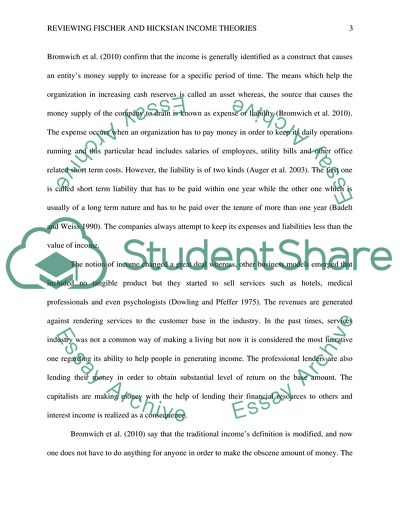Cite this document
(“'What is income In the context of a review of the income theories of Essay - 1”, n.d.)
'What is income In the context of a review of the income theories of Essay - 1. Retrieved from https://studentshare.org/finance-accounting/1638615-what-is-income-in-the-context-of-a-review-of-the-income-theories-of-fisher-and-hicks-critically-evaluate-the-challenge-to-the-use-of-hicksian-income-theory-in-accounting-policy-by-bromwich-macve-and-sunder-2010
'What is income In the context of a review of the income theories of Essay - 1. Retrieved from https://studentshare.org/finance-accounting/1638615-what-is-income-in-the-context-of-a-review-of-the-income-theories-of-fisher-and-hicks-critically-evaluate-the-challenge-to-the-use-of-hicksian-income-theory-in-accounting-policy-by-bromwich-macve-and-sunder-2010
('What Is Income In the Context of a Review of the Income Theories of Essay - 1)
'What Is Income In the Context of a Review of the Income Theories of Essay - 1. https://studentshare.org/finance-accounting/1638615-what-is-income-in-the-context-of-a-review-of-the-income-theories-of-fisher-and-hicks-critically-evaluate-the-challenge-to-the-use-of-hicksian-income-theory-in-accounting-policy-by-bromwich-macve-and-sunder-2010.
'What Is Income In the Context of a Review of the Income Theories of Essay - 1. https://studentshare.org/finance-accounting/1638615-what-is-income-in-the-context-of-a-review-of-the-income-theories-of-fisher-and-hicks-critically-evaluate-the-challenge-to-the-use-of-hicksian-income-theory-in-accounting-policy-by-bromwich-macve-and-sunder-2010.
“'What Is Income In the Context of a Review of the Income Theories of Essay - 1”, n.d. https://studentshare.org/finance-accounting/1638615-what-is-income-in-the-context-of-a-review-of-the-income-theories-of-fisher-and-hicks-critically-evaluate-the-challenge-to-the-use-of-hicksian-income-theory-in-accounting-policy-by-bromwich-macve-and-sunder-2010.


